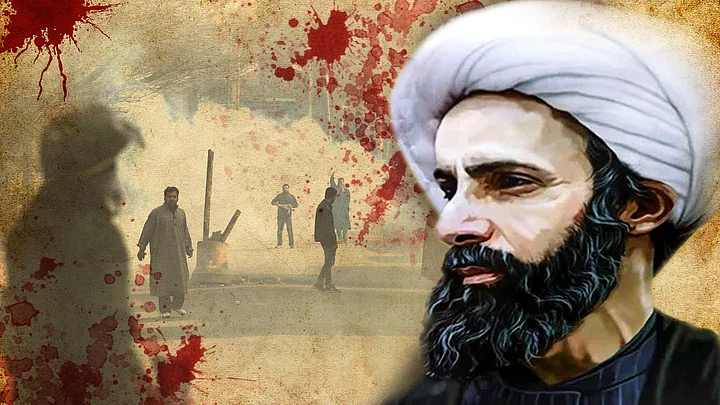The beheading of government critic and Shia cleric Sheikh Nimr al-Nimr by Saudi Arabia on Sunday triggered a wave of protests both in the Middle East and in India. In Srinagar and Lucknow, a large number of protesters took to the streets.
India’s 180 million Muslim population is Sunni dominated. Pew Research estimates that the Shia population of India makes for about 10-15% of that.
The Quint spoke to Muslim clerics, scholars, lawyers, journalists and even protesters to better understand the emotions behind the stir in India.
Curfew-like Srinagar
There were reports of curfew-like restrictions imposed in parts of Srinagar after widespread protests against the beheading of the Shia cleric. Shia leader Aga Syed Hassan who summoned protesters at Lal Chowk, spoke to The Quint and said that the issue is not sectarian but one that unites all supporters of humanity.
We condemn this act, it is a travesty of justice. All supporters of humanity have united in protest. The beheading was not anti-Shia, it was against against humanity. But I am sure that Sheikh Nimr- al-Nimr’s movement will be emboldened after this brutal act.
Syed Aga Hassan, Shia Cleric & Leader, Kashmir
Protestors in the valley concur. Aijaz Ahmed, a medical practitioner who participated in the protests in Srinagar on Sunday is a Shia, but said that his Sunni friends were as much a part of the protest as anyone else. It is not sectarian in the valley, he adds.
It is the message of Islam to raise a voice against discrimination and Sheikh Nimr al-Nimr was doing just that. Many of my Sunni friends accompanied me to the protest that was held in the valley. The protest was against the dictatorship, not against Sunnis.
Aijaz Ahmed, Protester, Srinagar
Shias, Sunnis & Hindus led Lucknow Protest
There was a peaceful candlelight vigil and protest march in Lucknow as well. The Shia cleric & scholar Maulana Syed Kable Jawwad, who led the protest, echoes the same view. He says the protests in Lucknow united Shias, Sunnis and even Hindus. He added, however, that Muslims in India are fast tiring of the country’s soft stand on brutalities like this.
India should impose sanctions against the Saudi dictatorship for the acts of human rights violation. It is the Wahabi ideology propagated in Saudi Arabia that is responsible for terrorism emerging in the region. It is unfortunate that it is bolstered by support from the Americans. Unfortunately our government has always adopted a very soft approach.
Maulana Syed Kalbe Jawad, Shia Cleric & Scholar, Lucknow
India Stir Not Sectarian
It would be wrong to think this as a sectarian drift alone, the issue between Iran and SaudI Arabia is political, says senior journalist Shahid Siddiqui.
This is not just the beheading of an individual, but Saudi’s challenge to Iran. It is the kingdom’s way of showing that they are the dominant force in the region. There will be no repercussions in India.
Shahid Siddiqui, Senior Journalist & Political Commentator
Senior criminal lawyer and Member of Parliament, Majid Memon says it is a human rights issue, not a sectarian one.
Even in India, a legitimate execution is being objected to because the death penalty is barbaric. The killing of the Shia cleric in Saudi Arabia may not locally evoke repercussions because even in the 21st century, Saudi laws permit state killings. However, in the 21st century, when the world has considerably moved towards the abolition of death penalty, this killing must be condemned.
Majid Memon, Criminal Lawyer & Member of Parliament
(At The Quint, we question everything. Play an active role in shaping our journalism by becoming a member today.)
